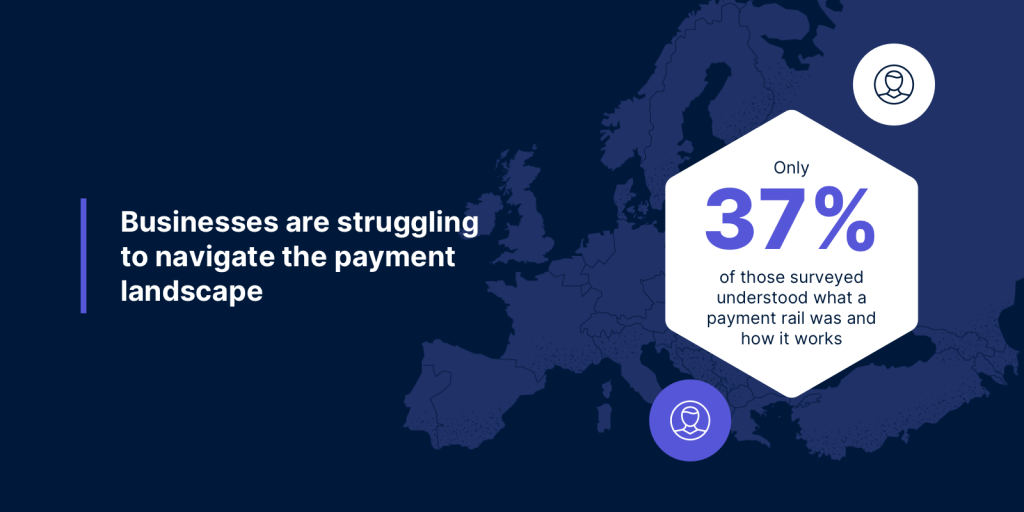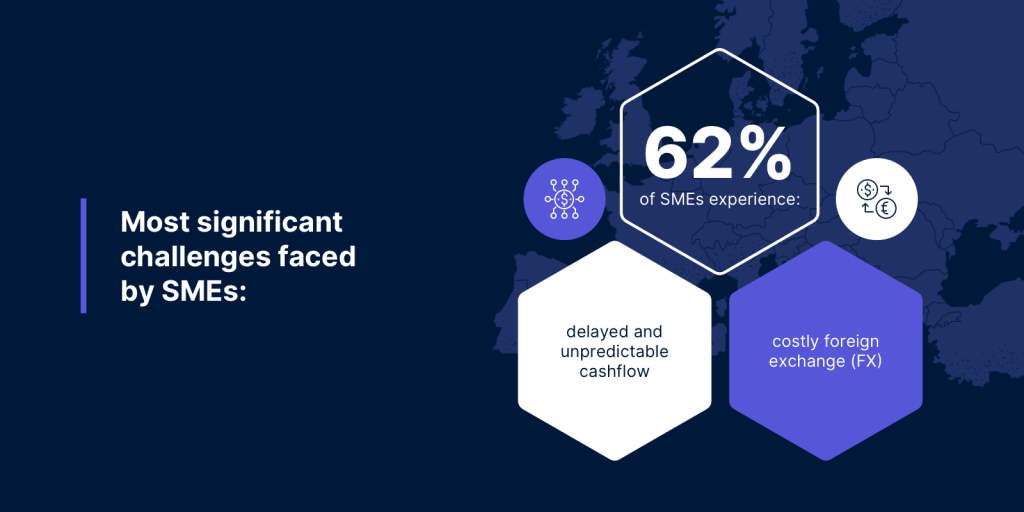One of the most integral parts of the banking ecosystem is payments. Yet, as straightforward as the act of making a transaction might sound, the process in which money is transferred from point A to point B can be complex.
We recently commissioned an independent survey of more than 2,000 decision-makers from European SMEs in the UK, Belgium, France and the Netherlands to understand more about the challenges faced in the current payment ecosystem.
At present, many organisations surveyed consider transaction settlement times to be slow, outdated and costly – particularly when operating internationally. Small and medium enterprises (SMEs) and those in the gig economy, who may struggle with cash flow issues if payments are not facilitated quickly, are at a particular disadvantage when it comes to these delays.
Businesses are struggling to navigate the payment landscape alone

Overall, a lack of knowledge of payment infrastructure underpinned the findings, as just 37% of those surveyed said that they understood what a payment rail was and how it works.
In a perfect world, all payments would run like clockwork, with funds reaching their destination accounts instantly. However, the majority of SMEs surveyed expressed that real-time payments are not yet within reach. Currently, just 10% overall have access to instant payments, with a further 11% stating that payments are processed within the hour.
Instead, the highest number of respondents across all territories (35%) said that international payments take between two and three days to reach their business. This was the case for 59% of the Belgian firms surveyed, 30% in France, 25% in the UK and 19% of those in the Netherlands, respectively.
The impact of slow settlement and missing payments
While common payment pain-points may not cause substantial problems for large firms with healthy cash reserves, SMEs are disproportionately affected by long settlement times, delayed transactions in the payments space, all of which can endanger the survival of their business.

With fewer reserves to draw upon when disruptions occur, our survey revealed that delayed and unpredictable cashflow is the single most significant challenge currently faced by 62% of SMEs. The same number said that costly foreign exchange (FX) contributes to yet another drain on their resources.
As a result of these delays, more than half (52%) said that they have failed to meet business commitments, while 54% were forced to take out a loan due to missing payments and cash flow disruptions.
A vision of the future

Despite the many issues at play for SMEs in the payments arena, the future looks much brighter. In the next 12 months, 68% of respondents said that they intend to adopt real-time payment processing capabilities, enhancing their available cash flow in the current macroeconomic climate.
Our findings shed light on the areas ripe for improvement in the payments industry, as well as a clear picture of the complications faced by SMEs. In the current economy, faster, cheaper payments are no longer just a nice-to-have – they are essential to the smooth running of these organisations. Ultimately, cash is oxygen for SMEs, and without it they cannot breathe.
Today, Banking-as-a-Service (BaaS) offers a solution to integrate the right payment processes for each specific need. With the right BaaS partner, navigating the payments landscape is a much simpler task for SMEs, who can gain access to real-time payments solutions that are easy to implement and cost effective.
Fill in the form below to download the Crossing Borders – Understanding the SME Payments Landscape white paper:



